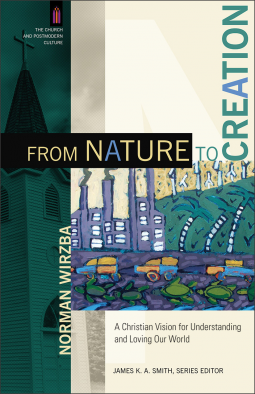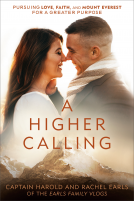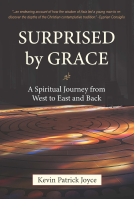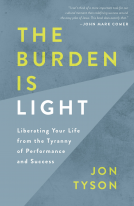
From Nature to Creation
A Christian Vision for Understanding and Loving Our World
by Norman Wirzba
This title was previously available on NetGalley and is now archived.
Send NetGalley books directly to your Kindle or Kindle app
1
To read on a Kindle or Kindle app, please add kindle@netgalley.com as an approved email address to receive files in your Amazon account. Click here for step-by-step instructions.
2
Also find your Kindle email address within your Amazon account, and enter it here.
Pub Date Oct 01 2015 | Archive Date May 31 2016
Baker Academic & Brazos Press | Baker Academic
Description
Named a "Best Theology Book of 2015," Englewood Review of Books
"Best Example of Theology in Conversation with Urgent Contemporary Concerns" for 2015, Hearts & Minds Bookstore
Available Editions
| EDITION | Other Format |
| ISBN | 9780801095931 |
| PRICE | $25.00 (USD) |
Featured Reviews
FROM NATURE TO CREATION by Norman Wirzba is the 10th book in The Church and Postmodern Culture Series. I liked the first two books in the series a bit more than this one (1. Who's Afraid of Postmodernism?: Taking Derrida, Lyotard, and Foucault to Church by James K.A. Smith, and 2. What Would Jesus Deconstruct?: The Good News of Postmodernism for the Church by John D. Caputo)
Norman Wirzba pursues research and teaching interests at the intersections of theology, philosophy, ecology, and agrarian and environmental studies. his research is centered on a recovery of the doctrine of creation and a restatement of humanity in terms of its creaturely life. In this book, he explores what it means for humans to be part of creation and how we can fully live in this world and love all of creation well. Wirzba engages philosophers, environmentalists, and cultural critics to show how the modern concept of nature has been deeply problematic. He explains how understanding the world as creation, not just nature or the environment gives shape to our imagination and increases our practices of responsibility and gratitude, helping us heal our lands and our communities.
Wirzba is writing against the wrong and harmful theology that views this life and this earth as something we want to escape - "I'll fly away" after all, who cares what happens to the earth?" Clearly, this is problematic, leading to people completely eschewing any responsibility for taking care of creation.
This is a dense, but short book, comprised of five chapters:
1. On Not Knowing Where or Who We Are
2. Idolizing Nature (we need to be good stewards of creation)
3. Perceiving Creation (how do we understand nature? developing a contemplative vision)
4. The Human Art of Creaturely Life (Bonhoeffer, need to recognize that we are finite, and learn how to tend the garden. And my favorite part: the emphasis on God's desire and intent to reconcile all things to God, not only humans.
5. Giving Thanks (Eucharist)
"Giving thanks is the most fundamental and honest expression of what it means to be a human being, because it is here, in the thanksgiving act, that people appreciate and attempt to live into the knowledge that life is a gift" (p. 131).
- we can see our interdependence with creation and our fellow humans











